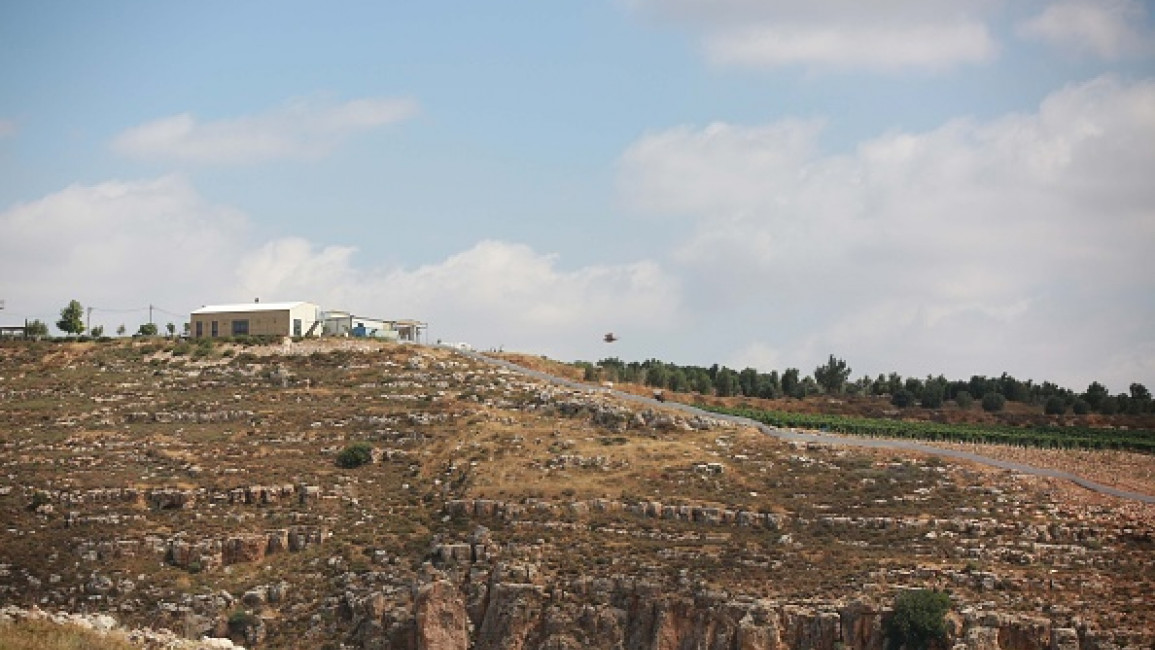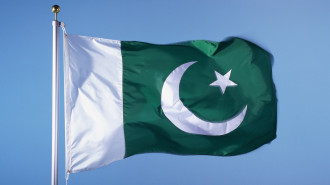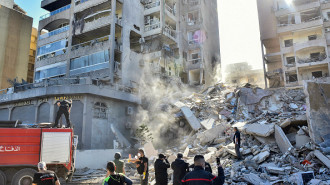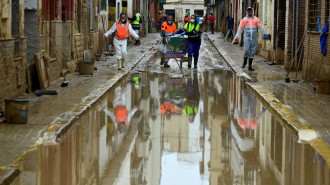Israeli troops preparing to build new segregation wall in West Bank's Area C
Israeli forces began sweeping farmlands on Sunday in preparation for the construction of a segregation wall in the occupied West Bank.
Bulldozers leveled crops in the town of Sinjil in the central West Bank, with the wall set to deprive landowners of access to their groves and confiscate around 8,000 dunams of land.
The decision to erect the wall was taken eight months ago, part of the far-right Israeli government’s plan to isolate Palestinian lands from Highway 60, a South–North intercity road running through the West Bank and stretching from Beersheba to Nazareth.
Speaking to The New Arab’s Arabic-language service, Al-Araby Al-Jadeed, Sinjil Mayor Moataz Tawafsha said the wall would be 1,500 metres long and four metres high, cutting off access to Palestinian farmers and their land.
Around 200 families' livelihoods depend on olive and fruit trees in these orchards, said Tawafsha.
Landowners went to court over the issue but their cases were rejected, after being told the plans to erect the segregation wall could not be appealed and would continue as planned in the farmlands in Area C. There are already five Israeli settlements and an Israeli military centre around Sinjil.
The 1993 Oslo Accords divided the West Bank into areas A, B, and C, with Palestinians having limited self-rule in areas A and B and Israel totally controlling Area C, which constitutes over 60% of the West Bank.
Israel has already built a massive separation wall along the Green Line boundary between Israel and the West Bank and inside parts of the occupied territory. Israel began the construction of the barrier during the Second Intifada in 2000.
Opponents of the wall have argued that the barrier has forced racial and religious segregation, as well as the creation of Palestinian ghettos that are cut off from basic services.
Palestinians call it a wall "of apartheid", depriving them of easy access to one town or village from another, asIsraeli settlements continue to be built.
The West Bank settlements are considered illegal by most of the international community, breaching the Fourth Geneva Convention which explicitly forbids an occupying power from transferring its civilian population to occupied territory.
The Israeli government, however, has actively encouraged settlement construction and considers only those settlement outposts constructed without its approval as illegal.
More than 600,000 Israeli settlers are present in the West Bank, among a Palestinian population of around three million.
The occupied territory has seen a huge spike in Israeli military raids and settler attacks over the past year with hundreds of Palestinians killed and wounded and over 10,000 detained.







 Follow the Middle East's top stories in English at The New Arab on Google News
Follow the Middle East's top stories in English at The New Arab on Google News


